This article has the twin purposes of resolving the apparent contradiction in the application and interpretation of the provisions on political prohibition in the Bank’s Articles and analyzing the Bank’s role in the protection of human rights. By considering the Bank’s own interpretation of these provisions and looking at the ChadCameroon project as an example of the Bank’s reaction to the interface of human-rights with its work, the paper raises a variety of questions and makes suggestions that are aimed at presenting a clearer approach to the attendant issues.
Political Prohibition and The World Bank’s Role in The Protection of Human Rights in The Saga of The Chad-Cameroon Pipeline
- +256 (0) 414 532954
- huripec.law@mak.ac.ug
About Us
The Human Rights and Peace Center (HURIPEC), a semi-autonomous department under the School of Law was set up by Makerere University in 1993, as the first human rights center of its kind in Sub-Saharan Africa.
Quick Links
Physical Address
- The Human Rights and Peace Centre,
- P.O. BOX 7062 Kampala, Uganda
- School of Law,
- Makerere University
